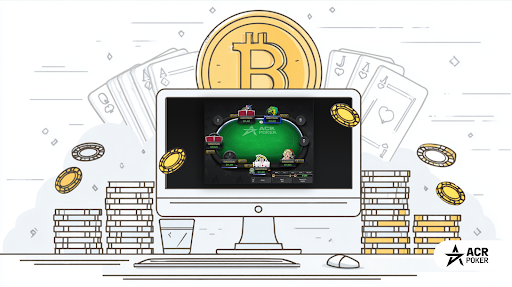Online gambling has entered a new era of privacy with the rise of anonymous casinos—platforms where players can wager and withdraw using only cryptocurrencies, often without standard identity checks. This relative anonymity offers freedom, but it also presents challenges, especially for those planning a “strict one-off” night of entertainment. For many, the goal is clear: enjoy a single, discreet session without falling into patterns that compromise privacy, security, or self-control. The risk of “slipping”—going beyond intended limits or leaving a digital trail—remains ever-present.
Planning such a night requires more than impulse; it demands a well-structured approach, sound knowledge of how these platforms operate, and an understanding of human behavior in high-stimulation environments. This guide breaks down the most effective strategies to ensure your foray is both fun and forgettable, from an online footprint perspective.
Understanding Anonymous Casinos: What Sets Them Apart
Anonymous casinos differ from conventional platforms in their approach to user privacy and KYC (Know Your Customer) procedures. Most anonymous casinos:
- Accept decentralized cryptocurrencies (e.g., Bitcoin, Ethereum) for deposits and payouts.
- Do not require detailed personal information or government-issued ID for registration.
- Employ provably fair games and blockchain-based audit trails for transparency.
This setup appeals to privacy-focused players or anyone who wants to avoid linking casino activity to their real identity. However, experts warn that these features can also create unique vulnerabilities if users aren’t careful.
“A single slip—such as depositing from a traceable wallet or accessing a casino from a personal device—can undermine all attempts at privacy,” says Leo Benning, a cybersecurity advisor specializing in decentralized gaming.
To minimize risks, a layered approach to preparation is essential.
Preparing for a One-Off Night: Steps for Security and Self-Control
A successful one-off night hinges on three pillars: privacy, budgeting, and psychological readiness. Here’s how to prepare with intention.
1. Set Clear Limits and Define Your “One-Off”
Before you even select a platform, decide what “one-off” means for you. Is it a single session, a fixed budget, or both? Clear, written boundaries make it easier to stick to your plan under pressure. Many players use:
- A strict financial cap, loaded onto a dedicated crypto wallet.
- A maximum playtime, monitored by an external timer or trusted third party.
- Pre-set goals for winnings or losses to trigger the end of the session.
2. Choose the Right Anonymous Casino
Research reputation, game fairness, and payout reliability before depositing. Leading industry forums, review aggregators, and blockchain explorer tools can help. Prioritize:
- Platforms with verifiable provably-fair systems and public audits.
- Solid reviews regarding withdrawals and no history of delayed payments.
- An absence of forced KYC triggers at payout thresholds.
3. Control Your Digital Footprint
Even at an anonymous casino, your own device or habits could betray you. To maximize privacy:
- Use a VPN or privacy-focused browser to hide IP addresses.
- Operate from a device that hasn’t been tied to identity-sensitive accounts.
- Set up a fresh, dedicated crypto wallet for the session, separate from regular holdings.
- Consider privacy-centric cryptocurrencies (like Monero) or tumblers for added protection.
The key takeaway: reduce digital overlap between your routine and your session.
4. Psychological Preparation: Avoiding the “Just One More” Trap
The environment in online casinos is designed to encourage longer play. To resist, combine digital tools with behavioral strategies:
- Use software to lock gambling sites after your session ends.
- Inform a friend of your one-off plan, adding social accountability.
- Pre-plan your post-casino activity, giving yourself an immediate “next step” after you log off.
Managing the Session: Strategies to Avoid Slipping
Preparation sets the stage, but in-session discipline is just as crucial. Here’s how to keep your one-off night on track.
Monitor Timing and Budget in Real-Time
Most slips occur when players lose track of time or spending. Use hard limits:
- Timer apps or phone alarms to enforce time constraints.
- Preloaded wallets that contain only your session budget—once emptied, you’re done.
Games with rapid rounds (like slots or roulette) can escalate the pace of spending, so double up on vigilance if you select these formats.
Recognize Vulnerability Points
Certain triggers are linked to over-extension in gambling, such as:
- Chasing losses to recover earlier bets.
- Small incremental deposits, which add up unnoticed.
- Emotional responses—frustration or euphoria—clouding decision-making.
Self-monitor for these cues, and institute a “pause and check” rule: if you notice any typical vulnerability point, step away for five minutes.
Maintain “Clean Exit” Procedures
The end of your session matters as much as the beginning. To ensure you don’t undo your efforts during a moment of weakness:
- Withdraw any balance immediately, transferring it out of the casino to a secure wallet.
- Clear cookies and cache, if you’re using a web-based platform.
- Power down or log out of the dedicated device.
This means severing all ties—financial, digital, and psychological—so you aren’t tempted to return impulsively.
Real-World Pitfalls: Lessons Learned from Community Stories
Failures are instructive. Across various gambling forums, players share common “slip” scenarios:
- Depositing extra funds during a losing streak, rationalizing it as a rare exception.
- Reusing wallets or devices tied to their regular transactions, exposing their activity.
- Returning “just to check” bonus offers, drawing them into new sessions.
Community consensus emphasizes discipline above all. As one seasoned player summarized:
“The difference between a one-off and the start of a pattern is strict closure—know your end point and stick to it, no matter what the outcome of the session.”
Integrating these hard-won insights into your plan fortifies your one-off gamble.

Weighing the Ethical and Legal Landscape
While anonymous casinos offer privacy, they may operate outside traditional licensing frameworks. Jurisdictional gray areas can pose risks beyond privacy:
- Difficulty recovering funds in case of disputes.
- Limited recourse against rogue operators.
- Uncertain legal standing depending on your country.
It’s essential to consider not just personal strategy, but the broader regulatory environment—a dimension often overlooked in planning.
Key Takeaways and Next Steps
A strict one-off night at an anonymous casino is possible, but only with clear boundaries, advanced preparation, and unwavering commitment to your exit plan. Leverage the same privacy features that initially attracted you, but temper freedom with control.
For those serious about maintaining a clean digital slate and a healthy relationship with online gambling, the best next step is to rehearse your procedures beforehand—practice loading budgets, using privacy tools, and running through your closure steps.
Remember: the true high comes not from the gamble, but from the satisfaction that you played—and exited—entirely on your terms.
FAQs
What makes a casino truly “anonymous”?
A truly anonymous casino allows users to register, deposit, and withdraw without providing personal identification, typically relying on cryptocurrencies and minimal data collection. However, true anonymity also depends on user practices—using privacy wallets, VPNs, and secure devices.
Can I ever be fully untraceable if I play just once?
Complete untraceability is exceptionally difficult, especially if any link to your identity, location, or regular crypto activity remains. Taking rigorous operational steps—unique wallets, secure connections, and fresh devices—reduces, but may not eliminate, all trails.
What’s the safest way to deposit and withdraw funds for a one-off session?
The safest approach is to create a new cryptocurrency wallet solely for the session and use privacy-focused coins or mixers. Always withdraw your balance immediately and transfer funds away from the casino environment as soon as you’re finished.
How do I resist the temptation to keep playing after my self-imposed limit?
Set hard controls before starting: stick to strict budgets in isolated wallets, use software or device locks, and plan a compelling follow-up activity. Alerting a trusted friend to your intentions can also increase your accountability.
Are there legal risks in using anonymous casinos?
Legal risks vary by country. Many regions restrict online gambling, particularly with unregulated, anonymous operators. It’s crucial to consult local laws or seek professional advice before engaging to avoid unintended consequences.













Leave a comment